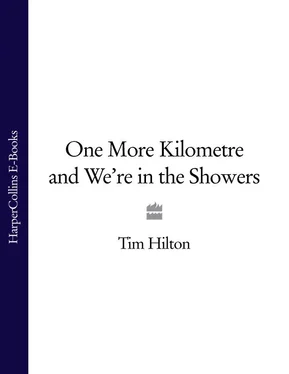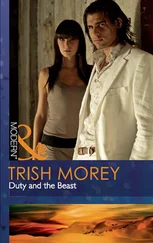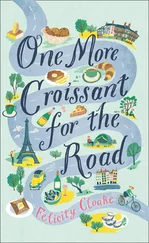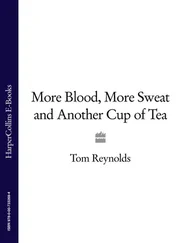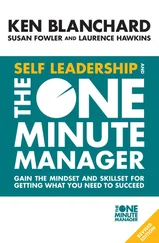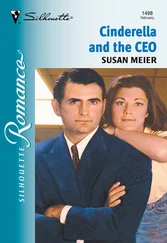Victor advised the BLRC. Gaston, like his father, did a bit of commissaire work for road racing until late in his life. The Berlemont family have all gone now, but there is an annual Victor Berlemont Memorial Road Race, organised by the Surrey League. The French pub still has a connection with our sport, a place of rendezvous for racing cyclists as well as bohemians. Photographs of old champions are on the walls, where they always have been. That handsome woman in the middle of the display is Lilian Dredge.
If we lived in Belgium we would know dozens of bars of this sort. But we are British. In the 1950s, when you could buy Miroir-Sprint from the foreign-language newsagent Solosy, Leaguers from the London area would go to Soho on Saturday mornings. They would sit in the French pub in winter, and in summer they would ride to race on the circuit that goes round the perimeter of Finsbury Park. Its surface was bumpy, there was no proper hill, kids and prams and footballs were all over the road, people took illegitimate laps out, since there were no real commissaires – but it was urban bike racing of a kind never seen before, nor scarcely since.
Looking back on Gaston Berlemont, I feel that he ran his Soho bar in much the same way that a commissaire controls the riders in a continental bike race. Even the maddest of us had respect for him. Gaston could stop fights in a few seconds, and was never angry. If you were barred from the French he would reinstate you the next day. When in need he would lend you money. And always there was the same calm, the twinkle in the eye, the same ample stomach and enormous gallic moustache.
There were many famous people in the French pub. Gaston gave them no more deference tham he would accord to any art student. He was like a commissaire in the Tour de France who listens to the domestiques as well as the champions. In person and demeanour Gaston resembled the greatest of modern commissaires, Jean-Marie LeBlanc, who has directed the Tour de France since 1994 after previous careers as a professional cyclist and a journalist. Gaston, like LeBlanc, was a linguist of sorts. He could make his decisions clear to anyone from any country, usually in simple French. An essential skill in Soho, and also in the man who supervises the affairs of the peloton.
The League needed a patron in the Berlemont mould. There was no single person who could unite so many difficult racing cyclists. Members of the BLRC fought with each other as well as with the NCU. They even managed to suspend Percy Stallard, the man to whom the League’s very existence was owed. In some areas there were totalitarian demands that records of errant members be excluded from the minutes and account books. But minutes were not often kept and finances were always in disarray. Meetings were inefficiently chaired and the arguments went on for twelve hours or more.
The indiscipline was a caricature of democracy and the political process. The wonder is that the Leaguers were able to put on so many good bike races and to assemble international teams of high quality. But so they did, and furthermore were usually victorious when it came to outwitting the NCU. This was the work of many remarkable characters, generally the more experienced Leaguers, among whom I single out Jimmy Kain.
Jimmy, a shoe repairer from Enfield, was probably the oldest of the rebels. In his sixties when he took a hand in the League’s affairs, Jimmy had fought in the First World War and claimed that, in its darkest days, he and his comrades had been issued with guns that were ‘ex-Crimea carbines’ that ‘must have come from condemned stores’. If so, this modern racing cyclist had been in a war carrying a gun that had been manufactured in the 1850s. He was an ancient patriot, was Jimmy Kain, and he ended his days in uniform as a Chelsea Pensioner.
From his hand came the most ludicrous triumph of the BLRC over its enemies in the NCU. He devised and wrote the ‘Loyal Address’ to King George VI on the occasion of the League’s chaotic (and, according to the NCU, illegal) 1945 stage race between Brighton and Glasgow. A precious photograph of this document shows its elaborate penmanship. I wonder whether Jimmy’s shoemaking trade helped him to find a source of parchment? Anyway, the address begins
Most Gracious Sovereign,
We, the Chairman, Members of the National Executive Committee, Honorary Secretaries and Members of the British League of Racing Cyclists, your Majesty’s loyal and dutiful subjects, on the occasion of a ‘Victory Race’ being held by its members …
and ends many paragraphs later with the hope that, with the end of European hostilities,
all Sports, including the sport of Cycling with which we, your Majesty’s loyal and dutiful subjects are particularly concerned, may be resumed and long continued so that the objects of our League, namely, the development of healthy competition and friendly rivalry in Cycling Events may proceed unhampered.
James Kain, 24 Disraeli Road, Ealing, in the County of Middlesex.
The address was delivered to Buckingham Palace by four Leaguers (Alex Hendry, Ernie Clements, Alan Colebrook and ‘Acker’ Smith) on their bikes and in racing gear. Only a day later Jimmy got a reply from the Palace in which he read, ‘The King will be grateful if you will convey to the members of the League his sincere thanks … etc. etc.’. How could the NCU compete with such a propaganda coup? The sovereign himself seemed to have become an ally of the rebels.
Back at 24 Disraeli Road Jimmy Kain faced a crisis in his cycling life. The names of two local clubs indicate a schism that was partly of his making. The Ealing CC and the Ealing Paragon CC were once one body, but split because of a local war between Leaguers and non-Leaguers. Which side was to inherit the original club’s records, its bank account and its precious silver trophies, many of which had been donated by the cycling parents of the club’s present members? How many people were on the NCU side? They could be counted. How many people were on the League side? Did the League keep an accurate list of its members, and had subscriptions been paid and properly accounted? (Very often the answer was no.)
The problems in Ealing were repeated all over the country. It was a hard time for clubmen – and for their wives. They had joined the Wobbly Wheelers through simple love of the bike. Now they had to make decisions that would brand them as conservatives or partisans. Stallard always said that there could be no compromise. ‘You were either with us or against us.’ He also claimed, untruly, that within the League ‘we were one big happy family’. It is hard to explain the mixture of high spirits and nihilism in the collective League mind. Jimmy Kain’s rare pamphlet Britain’s Cycling Frankenstein: A Disunited Colossus (n.d. but 1953) takes as its motto a quotation from The Rubáiyát of Omar Khayyám:
To grasp this sorry State of Things entire
… Shatter it to bits … and then,
Re-mould it nearer to the heart’s desire …
I wonder whether the quotation represents one kind of post-war attitude, the frustrated feeling that everything had to be torn down before we could begin anew. Those years, we know, saw the largest recruitment to the company of British anarchism and ‘libertarianism’. Jimmy Kain, however, was a monarchist. He sometimes sent long telegrams to Clement Attlee threatening to report him to the King, like this one about possible Home Office objections to road racing:
REPRESENTING THOUSANDS LAW ABIDING MEMBERS BITTERLY RESENT LETTER ZV STOP STROKE 22 JULY AND DISCRIMINATION EXPRESSED WHILE YOU STOP TRAFFIC FACILITATING SURGING CROWDS ATTEND SPEEDWAY AND DOG RACING STOP SPEEDWAY RACING BREEDS SPEED CRAZED PILLION RIDERS OF GRISLY RECORD STOP THUS KEEPING DEATH ON THE ROADS STOP REPEAT DEATH ON THE ROADS WILL TAKE THIS MATTER TO HIS MAJESTY THE KING IN EFFORT TO OPPOSE YOUR DISCRIMINATION…
Читать дальше
